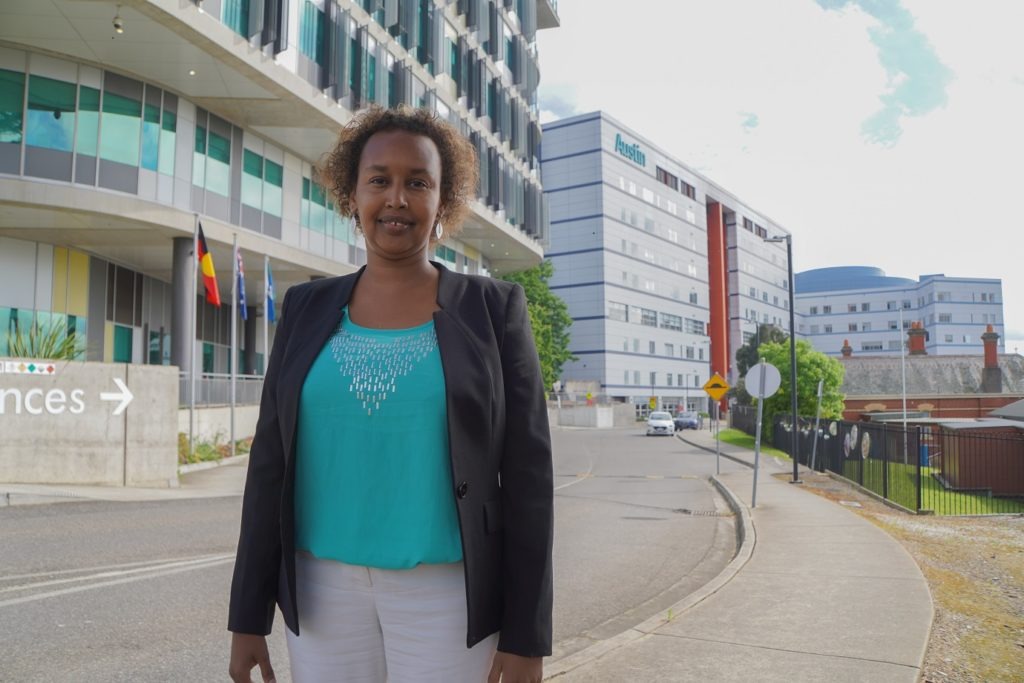Climate change, mental health, support for families and children with special needs, integrity in politics and social equity.
These are some of the major issues that matter to Zahra Mustaf, an architect, businesswoman, mother, and independent candidate for the upcoming federal election.
Mustaf lives in the north eastern suburbs of Melbourne, in the Labor-held seat of JagaJaga and she’s decided to put herself forward as an independent to give her an electorate a choice outside of the major parties.
“I’m at a point in my life where I’m able to make a change. I can’t just sit and watch things go downhill and let it slide,” she told Women’s Agenda recently.
Mustaf was born in Somalia and moved to Melbourne with her family in 2004. She’s raised her children in the area for years and has deep roots in the local community.
“At the end of the day, I’m running as a mum and a citizen wanting a change for everyone,” she says. “As an independent, you don’t need to toe a party line, you don’t necessarily have major donors. It’s your community that is donating for you to run, so you become a voice for the community.”
Mustaf’s professional and life experience is vast. She’s used her skills as an architect to better the lives of others in East Africa, having worked with UNICEF to deliver 72 new schools to local communities in Somalia. She also survived a targeted terror attack while working there in 2014, a terrifying experience that she says brought home the absolute importance of democracy.
“From the day forward, I’ve been determined to work hard to make sure democracy exists and no one can intimidate people who are building schools or building democracy.”
Unlike many of the other female, independent candidates that have announced campaigns in different parts of Australia in recent months, Mustaf is running against a Labor incumbent, not a member of the Coalition. JagaJaga is held by Kate Thwaites MP, who was elected to parliament in 2019. The seat has been held by Labor since its inception, which Mustaf says has led to complacency.
“In JagaJaga, we’ve been a safe seat. When you become a safe seat, you get nothing done,” she said. “It’s not about whether the seat is Labor or Liberal, it’s about whether anything has been delivered to the electorate in the past ten years.”
“The major parties just have too much power in Australia, so I’m so glad this movement of independents is happening.”
Last week, Women’s Agenda published an op-ed written by Div Pillay on the recent rise of female independent candidates, noting they are mostly white, privileged women.
Pillay said she’s tired of relying on white women in powerful and privileged positions “to make the change I need to feel equal” and knows that many other women from migrant backgrounds feel the same.
“I wonder how intersectional gender equality will be understood and championed by them to truly create change for the most vulnerable women amongst us?” Pillay wrote.
Mustaf said she read Pillay’s piece and thought “I hear you, I feel your frustration”.
“When we talk about federal politics and diversity in parliament, it always comes first to white women. And there are so many other women in Australia – African, Asian, Indigenous women, that have all the same leadership skills,” Mustaf said.
Mustaf says her life experience and professional background will be valuable assets in federal parliament, and she wants to be able to give her community, and all people, regardless of their background, a voice.
“The Canberra bubble needs to burst. They’re all in a cocoon, where they think the same and don’t know many Australians think differently. We need more women and men with real life experience, who understand what it’s like to raise children, care for someone with special needs, and can understand these kinds of challenges when making policies,” she said.
“I want young girls to be able to say, ‘I can aim where she aimed’. As humans, we are quite visual. I have an architecture background, so I can really say that seeing is believing.”


